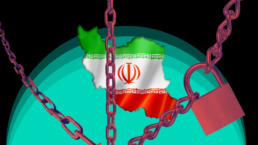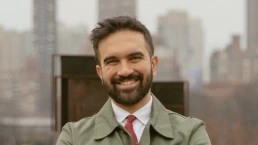When it comes to Iran, sanctions are war by other means. Time to stand up to American imperial bullying.
By Hanieh Jodat, RootsAction
For decades the U.S. has used sanctions as a weapon of war and starvation, aimed at other countries — mostly those with resources such as oil. The through line is that if a country won’t allow America and its allies to control resources and submit, those countries end up as targets for economic, diplomatic, and military action. While military intervention and covert action are never off the table, economic sanctions allow the U.S. to force other leaders into submission by impoverishing their people. What looks on the pages of the New York Times like a genteel, diplomatic effort to resolve a thorny situation is usually much simpler: the most powerful country on the planet using hunger, unemployment and illness to foment regime change against any rival.
How does it work? Sanctions prevent access to international credit, disrupting the normal operation of trade relations. Fancy words for depriving food and medicine from the most vulnerable: children, the elderly, and those with chronic illnesses.

Iran is home to an ancient and proud civilization. Since its revolution in 1979, the U.S. has engaged in constant efforts to undermine, destabilize, and threaten its regime. In other words, since long before nuclear weapons had anything to do with anything.
Despite this history, Iran and the U.S. were able to come to an agreement that took nuclear weapons off the table in Iran in exchange for the lifting of (some, not all) sanctions and the resumption of (closer to) normal trade relations with the world. Trump unilaterally abandoned this agreement in 2018 and re-imposed a brutal sanctions regime. Today, there are over 1500 primary and secondary sanctions on a country of 83 million people, half under the age of 35.
Sanctions have reduced Iran’s access to equipment needed for energy production, prompting many foreign oil companies to leave Iran. Hospitals cannot access necessities ranging from critical drugs for epilepsy patients to chemotherapy medications for cancer. All of this was true before the pandemic, which made things even worse for regular people. Food prices are up 60%. Those who rely on work to make a living, and the poor, are the ones most impacted.
Sanctions Around The World
The U.S. has not been shy about enacting sanctions to challenge countries embracing socialism or pursuing the nationalization of key industries. For sixty years the U.S. has imposed an embargo on goods to and from Cuba. Since 2017, the U.S. has frozen all Venezuelan government assets, withholding over $5 billion dollars of Venezuela’s own money.
Congress has done little to advocate for U.S. compliance with its treaty obligations. There is seemingly no political will to urge the Biden administration to carve out meaningful exemptions for humanitarian aid, or to allow the flow of medicine, food, and equipment for essential infrastructure — the kind that treats water and sustains a country’s healthcare system. Americans don’t ask out loud how many children must die so we can impose our will on others. The affected countries think about it all the time.
When will members of Congress call for mandatory public assessments of all current and future sanctions to best determine their impact on the lives of innocent people and on the economic stability of targeted countries? In the face of the imperial presidency, Congress has all but abdicated its constitutional authority to declare war. Because that’s what is happening in Iran and elsewhere: a U.S. led war against enemy populations, most of whom are innocent by any measure.
Recent Posts
The Rage Of Billionaires And The Frenzy To Stop Zohran Mamdani From Becoming New York’s Mayor
June 30, 2025
Take Action Now The constellation of forces now regrouping with a vengeance includes titans of Wall Street, enormous real estate interests,…
It’s Not Just The Cities. Extreme Heat Is A Growing Threat To Rural America.
June 28, 2025
Take Action Now The urban heat island sits in a rural heat ocean.By Umair Irfan, Vox Summer has officially begun with a blast of scorching…
Mamdani’s Massive Victory Should Show Democrats Where The Party’s Future Lies
June 27, 2025
Take Action Now NYC mayoral candidate Zohran Mamdani has thrown the drowning Democratic Party a life vest. Will its leaders use it?By Sam…
India Walton’s Advice For Zohran Mamdani
June 26, 2025
Take Action Now “I think that for him, the race ’til November needs to be staying on message—we can’t start to water it down…




